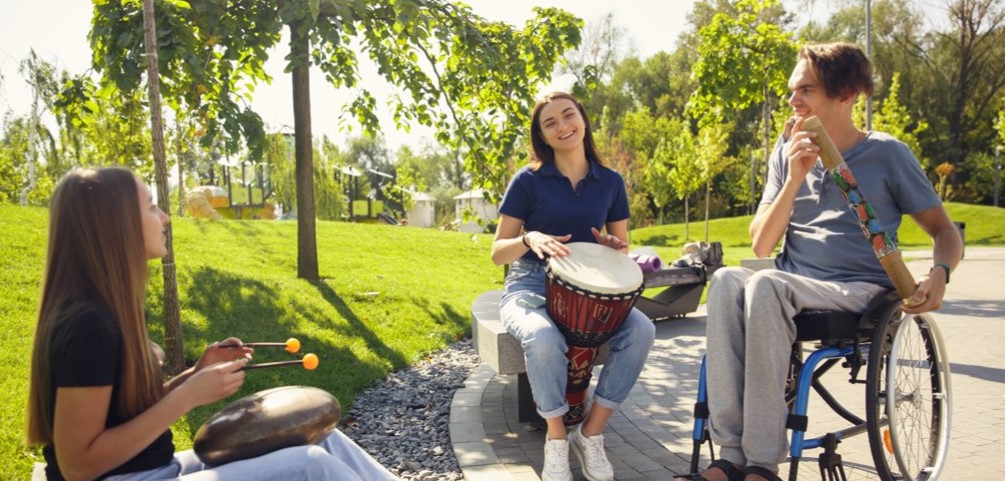Social activity plays a key role in selfcare, as research has demonstrated its impact on both physical and mental well-being. With the rise of chronic illnesses, people of all ages and backgrounds must become more aware of the importance of social activity in maintaining their health. According to recent studies, up to 30% of people with chronic illnesses feel their social activity has decreased since the onset of their illness.
The Benefits of Social Activity
Studies have shown that social activities can reduce stress and anxiety, improve mental health, and increase overall well-being. People who engage in social activity have been found to have better physical health, including increased immunity, lower blood pressure, and improved heart health. Additionally, social activity can help to reduce symptoms of depression and anxiety, as well as provide a sense of connection and belonging.
Social Activity and Mental Wellbeing
Social activity is important for mental well-being, as it can help to reduce stress and build confidence. In addition, social activities can increase self-esteem, provide a sense of purpose, and help to create meaningful relationships. Socially active people are also better able to cope with difficulties, as they can draw on their social network for support.
Furthermore, social activity can provide an outlet for creativity, allowing people to express themselves and explore different interests. This can help to reduce feelings of loneliness, isolation, and boredom, which are often linked to depression and anxiety.

Social Activity and Chronic Illness
In a study of over 16,000 people show that 32.2% suffered from chronic illnesses that limited their daily activities, and 26% reported social participation restrictions to some degree. While having chronic illnesses was associated with greater psychological distress, the association was also through increased social participation restriction. For individuals living with chronic illnesses, social activity can help to reduce stress and improve their quality of life. It can provide an outlet for expressing emotions and can create a sense of community, allowing people to better manage their condition. Additionally, social activities can help to reduce feelings of isolation, allowing individuals to connect with others and share their experiences. Social participation, where people with chronic illness feel valued and of tangible utility to other people, might offer some opportunities for rebuilding social status outside the labor market. Chronic illness management interventions need to focus on improving people’s engagement with such activities.As stated in this article, you can browse your selection of available deals on smartphones and top brands and explore the cell phone service plans that best suit your needs.
The Role of Healthcare Professionals
Mental well-being is a major concern for healthcare providers, as nearly 1 in 4 adults with chronic illnesses experiences depression or anxiety and it can go up to 3 in 4 in certain chronic conditions. Healthcare professionals play an important role in promoting social activity for people with chronic illnesses. By encouraging social activities and providing information about the benefits of social activity, healthcare professionals can help people to manage their condition and improve their well-being.
Additionally, healthcare professionals can refer individuals to support groups and other resources that are available to those living with chronic illnesses. By providing access to these resources, healthcare professionals can empower people to take control of their health and improve their mental well-being.
Conclusion
Social activity plays an important role in healthcare, as it can have a positive impact on both physical and mental well-being. Healthcare professionals can help to promote social activity by providing information and support, and by connecting individuals to resources that can help them to manage their condition and improve their wellbeing.
References
Choi S. The Effects of Social Participation Restriction on Psychological Distress among Older Adults with Chronic Illness. J Gerontol Soc Work. 2020 Nov-Dec;63(8):850-863. doi: 10.1080/01634372.2020.1830217. Epub 2020 Oct 12. PMID: 33043850. https://pubmed.ncbi.nlm.nih.gov/33043850/
Yang G, D’Arcy C. Physical activity and social support mediate the relationship between chronic diseases and positive mental health in a national sample of community-dwelling Canadians 65+: A structural equation analysis. J Affect Disord. 2022 Feb 1;298(Pt A):142-150. doi: 10.1016/j.jad.2021.10.055. Epub 2021 Oct 30. PMID: 34728294. https://pubmed.ncbi.nlm.nih.gov/34728294/
Vassilev I, Rogers A, Sanders C, Cheraghi-Sohi S, Blickem C, Brooks H, Kapadia D, Reeves D, Doran T, Kennedy A. Social status and living with a chronic illness: an exploration of assessment and meaning attributed to work and employment. Chronic Illn. 2014 Dec;10(4):273-90. doi: 10.1177/1742395314521641. Epub 2014 Jan 31. PMID: 24486894. https://pubmed.ncbi.nlm.nih.gov/24486894/
Read more about mental health and Chronic condition: https://meempowerme.com/chronic-conditions-and-mental-health/
Read more about Diabetes and mental health: https://meempowerme.com/diabetes-and-mental-health/


